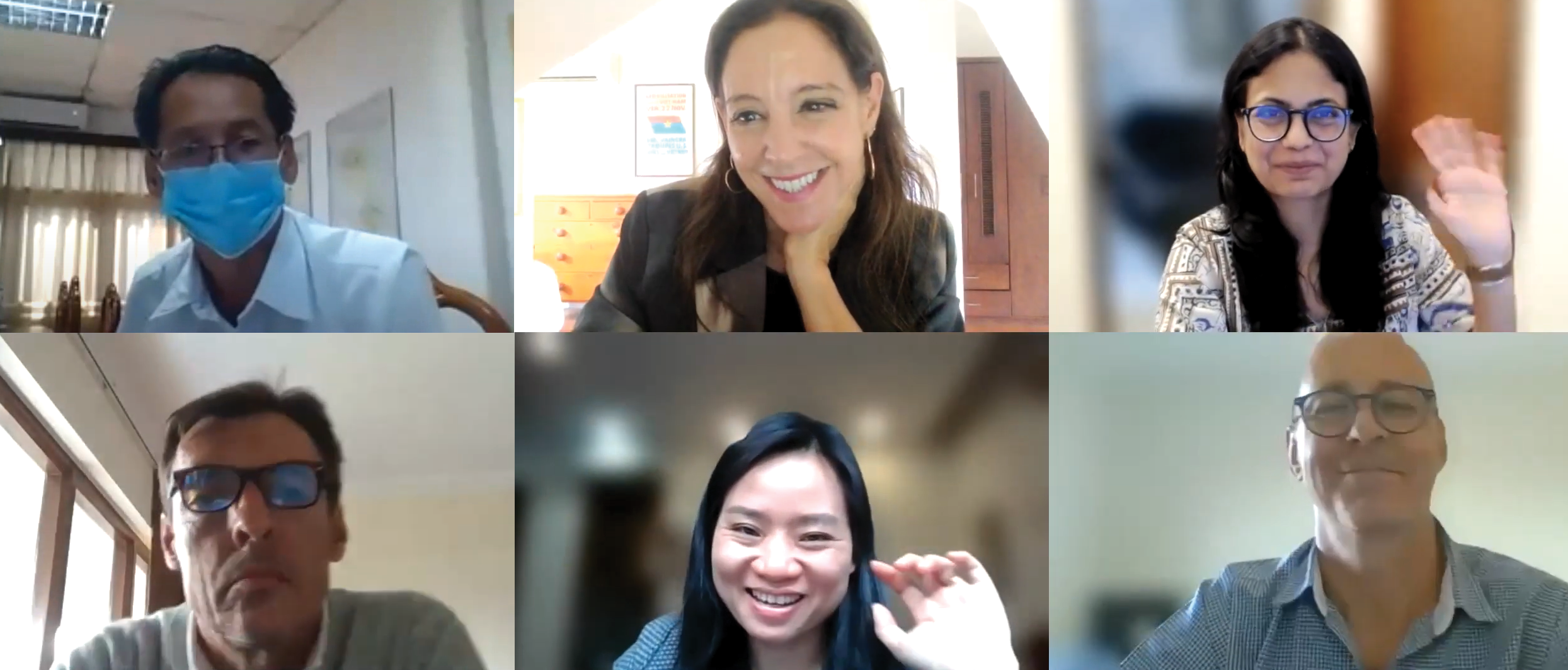
The Greater Mekong Subregion (GMS) has made unprecedented progress towards malaria control and elimination. The region has made a commitment to eliminate Plasmodium falciparum by 2023 and all forms of malaria by 2030. Whilst it is early to measure the full impact of the COVID-19 pandemic on malaria cases and deaths, the GMS region has reported a 27% decline in malaria cases in 2020 compared to 2019. GMS countries have moved fast to adapt strategies and guidelines for malaria service delivery, training, and program implementation. In the recent APMENxChange webinar, malaria programs and civil society organizations shared how they are tailoring the strategies to maintain momentum towards malaria elimination, despite challenges posed by the pandemic.
During the webinar, the Asia Pacific Leaders Malaria Alliance (APLMA), Asia Pacific Malaria Elimination Network (APMEN) and Malaria Free Mekong (Regional CSO Platform GMS) launched a new case study focusing on GMS entitled “Moving Steadily Towards Malaria Elimination in Times of Covid-19”
Dr Boualam Khamlome, Deputy Director, Center of Malariology, Parasitology and Entomology, Ministry of Health, Lao PDR, shared impressive approaches of Lao PDR to tackle the disease when the mobility patterns have shifted both domestically and cross-border during COVID-19. He emphasized the bottom-up approach that Laos has been using at sub-national level on surveillance data, to inform the targeted responses both to malaria and COVID-19 outbreaks. Furthermore, he reinforced the importance of ensuring that the supplies and the human resources are aligned with a local needs.
Dr Boualam also explained how the Public Health Emergency Operation Centers operate and how the coordination of the communication across programs, inventions and levels is happening. The integrated management of multiple infectious diseases is increasingly important as the malaria caseloads are decreasing.
Prof Frank Smithuis, General Director of Medical Action Myanmar and Director from Myanmar Oxford Clinical Research Unit, has highlighted the importance of community health workers, and why critical supplies should be maintained for them. He explains that community health workers’ functions are part of a broader health system in most countries, and transparent information should be shared across all partners to jointly identify and solve the issues.
Prof Frank pointed that the elimination and COVID-19 response effectiveness does not always need to be innovative, but the basics are important. He emphasized the need of field teams to feel reassured that the work that they are doing is essential and that we are providing the communities as much as possible with a safe infrastructure and context to work. The public health interventions must be sustained in any political context and the work to ensure that the needs of communities in very remote are being met and continued to receive support.
Nguyen Thi Minh Nguyet, Country Director, Health Poverty Action (HPA), Vietnam, highlighted the innovative program that HPA is doing to integrate the rapid antigen testing and screening for COVID-19 into the community-level case management of Malaria in seven prioritized provinces.
She shared HPA’s Mobile Outreach Teams composed of volunteers and how the interventions including active outreach activities were adapted during Covid. She also highlighted the critical importance of upgrading services, products, and information as close to communities as possible on this bottom-up approach together with the importance of flexibility in these times.
Lieven Vernaeve, Program Manager, Malaria Consortium, Cambodia, emphasized the importance of the high-level political commitment to sustaining elimination activities throughout the pandemic. The Mobile Malaria Workers and other Village Malaria Workers who come from the communities and who are forest goers themselves are critical to sustaining effective malaria elimination programming.
He presented that building the activities and programs with the needs of communities means that especially as cases drop and Civil Society Organizations are working with increasingly remote populations with an integrated lens providing more than malaria care. This highlights the flexibility with the safety approach in these challenging times.
“The GMS case study should not just be a documentation but something that will help us as a community internalize what we need to do when faced with change. The experiences from the five countries and civil societies, could serve as a blueprint that will guide us as we build our implementation muscle to address future challenges. We were able to highlight from the GMS incredible leadership commitment, sustained financial commitment and the way programs and civil society organizations can integrate and adapt to meet the challenges of the pandemic, and these are actually reflected across the region more broadly beyond the GMS.” Amita Chebbi, Senior Director, APLMA/APMEN
This webinar was moderated by Josselyn Neukom, CSO Representative to RAI Regional Steering Committee. Full recording of the APMENxChange webinar can be viewed here.
